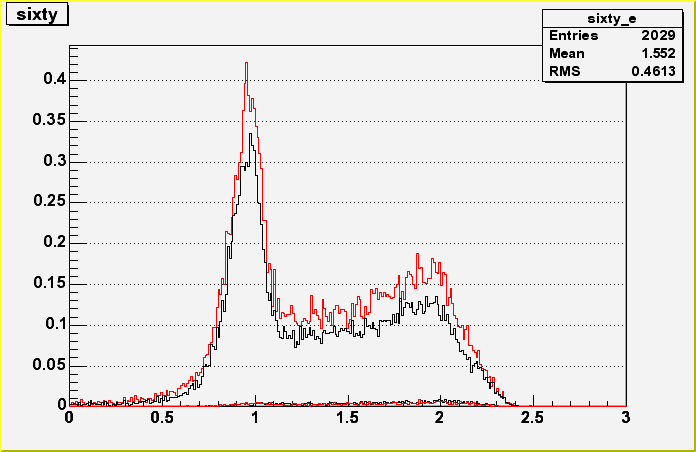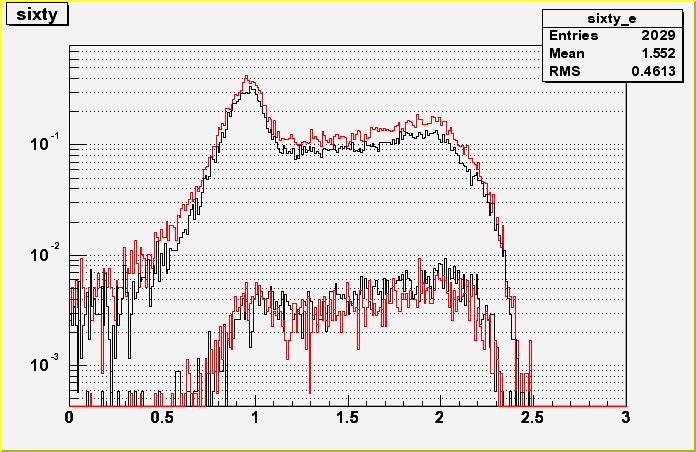Hello,
for the sake of today's 40/60 cm discussion
### rate comparison hydrogen data for unpol system####
_ Assumes: only M=2 flow, events in +- 15 cm (Helastic_tight, no cerenkov)
Elastic yield = N_events/ charge/ Buffer inlet P
_ the elastic yield for runs with V14 CLOSED (runs 7424 vs 6864) increased
a factor of 12.9/7.8 = 1.65. The expected value is 1.8 (assuming perfect
cilindrical geometry, neglecting valved off injection tube)
_ the same elastic yield for runs with V14 OPEN (runs 7556 vs 5471)
increased by a factor of 11.3/9.7 = 1.2. This should be compared to
1.4 (15 x 130 mm inlet tube, at 300 K)
1.5 (15 x 130 mm inlet tube, at the same temperature as the cell
wings)
_ So the rate is ~ 10 % lower than expected when v14 is CLOSED, and ~
15-25 % lower when v14 is OPEN. Note I integrate over +- 15 cm
_ all in all, the remaining discrepancy is 15-25 % A scenario with an
inlet tube at 300 K is favoured, but the overall difference is not big,
given that if the inlet tube is at room temp, it is at room T for both cells.
I always assume a 15 mm x 130 mm inlet tube
_ In summary V14 open data : unpol (one run) measure 1.2, ABS measure 1.3
density increase with a 60 cm cell. For the higher ABS increase one may
invoke a higher molecular fraction at 60 cm (*relative* to 40)
_ Notes: always > 1000 cnts in the sample and the error assuming a linear
Pbuffer dependence is 5 % at worst (fit gives (P_inlet)^1.075 dependence)
### eep comparison polarized deuterium data####
_ In the first attachment I show the missing mass spectrum for d(ee'p)n
events. Black is 40 cm, red is 60 cm ABS data. Also shown in the second
plot is the contamination as measured in in empty target runs. All data
is normalized to charge.
Asymmetries are essentially calculated from data in this Mm distribution,
selected around the M_neutron peak. Apart from a yield increase in the
ABS, the data has not significantly changed from 40 to 60 cm cell. Please
note that the ABS realignement brought a 10 % increase of the yield.
Empty-cell background appears to have not increased for 60 cm cell, and
ABS data do not look any different for 40 and 60 cm cells. I doubt
"background" is an explanation of the lower polarization data.
________________________________________________________________________________
Tancredi Botto, phone: +1-617-253-9204 mobile: +1-978-490-4124
research scientist MIT/Bates, 21 Manning Av Middleton MA, 01949
^^^^^^^^^^^^^^^^^^^^^^^^^^^^^^^^^^^^^^^^^^^^^^^^^^^^^^^^^^^^^^^^^^^^^^^^^^^^^^^^


This archive was generated by hypermail 2.1.2 : Mon Feb 24 2014 - 14:07:31 EST